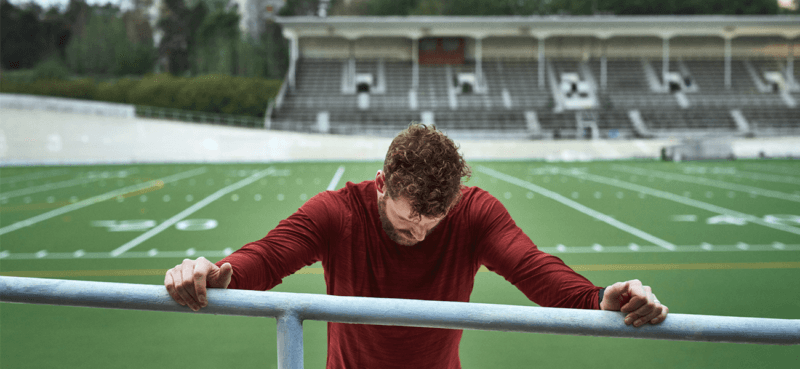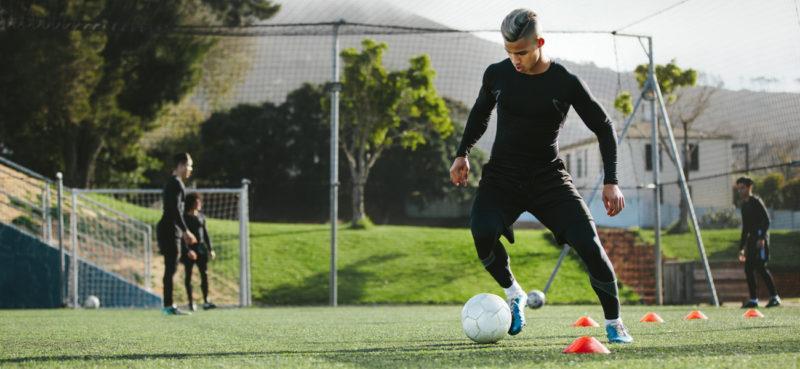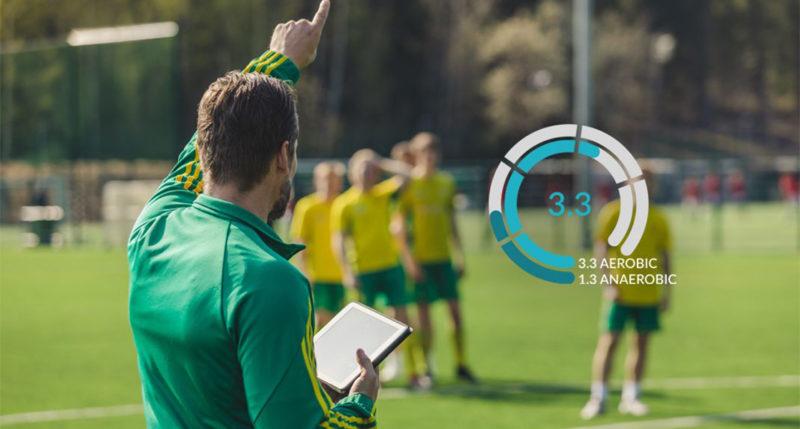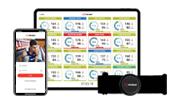
Team GB alpine ski coach Jai Geyer has been using Firstbeat Sports to help monitor the recovery of Olympic skier Dave Ryding throughout the most recent season. This included the 2018 Winter Olympics in Pyeongchang where Ryding finished 9th, Team GB’s best alpine skiing result in 30 years and just half a second outside the medals. We caught up with Geyer to see how he has used Firstbeat, and the impact it has had.
The margins between success and failure in elite sport are incredibly thin. Across the world, and in every sport, coaches put together meticulous training plans to help athletes be at their best when it matters most. But, with professional athletes training for only 25 hours-per-week on average, that leaves a lot of time – 147 hours each week to be exact – where decisions and choices can impact things like stress levels, recovery and, ultimately, performance.
Feeling Fresh
“There are so many other factors that affect stress and recovery beyond what happens in a single training session,” explains Jai Geyer, alpine ski coach with the Team GB squad. “Long haul travel, pre-race anxiety, heavy weight lifting sessions…To be able to look at all this together, it gives you an indicator of the overall freshness for that day.”
And freshness is something Geyer acknowledges has a big impact on athlete performance.
“Freshness trumps a lot of other things in terms of performance,” says Geyer, a former member of the alpine squad himself. “Especially in something so skilled with so much finesse like skiing that demands so many different types of fitness.”
“We focus on preserving freshness to keep training quality high and getting it at the right time like at major competitions. Trying to maintain it throughout the season isn’t easy, so we wanted something that used more of a holistic approach than just pumping out a number based on your training workload for that day. We’re all very quick to meticulously monitor the “doing” (training sessions with heart rate monitors, GPS etc), but if you are not looking at the other side of the equation, monitoring what is happening during the “not doing” like recovery and sleep, I think you’re missing a big part of the picture.”
Using the Firstbeat Bodyguard – a lightweight device that automatically tracks heart rate variability via two electrodes attached to the skin – Jai has been able to collect data on Team GB’s Dave Ryding relating to everything from daily stress levels to overnight recovery. This has allowed him to see the bigger picture regarding the Olympic skier’s internal load and overall wellbeing whilst traveling and competing and has helped inform decisions surrounding training plans.
Buy-In
Of course, Geyer doesn’t have Ryding wear the Firstbeat Bodyguard device all day and night. He wants to achieve positive athlete buy-in and avoid any “Big Brother” type scenario for the athlete. Thankfully, the buy in hasn’t proved a problem.
“The athletes have bought into it very well. Although it isn’t invasive, going from not wearing it to wearing it most nights, it becomes part of their routine to put it on before bed,” the GB coach explains.
“You never pull the wool over the eyes of the athletes. They’re good at knowing how they are. Normally, if it is evidence-based and scientifically backed, they’ll be on board with it quite quickly. They understand it is a tool to help us as coaches, help them.
“Fatigue masks fitness so we need to get the balance right, especially in the final weeks and days before each major event. Flights and travel days close to races, meal times and getting to sleep, the intensity, duration, and type of training on the slopes, pre-race stress, hours of quality, undisturbed sleep, average resting heart rates and the onset of potential illness.”
We realize it’s trying be perfect in an imperfect environment, and that everything you are doing has a consequence, big or small, good or bad. Firstbeat Sports Individual helps us know, so we can take the right action. We will not do without it next year.”
That difference was made clear to both coach and athlete when assessing the season and just how important effective recovery and freshness were when it came to competing.
“His top three competition performances through the season were all invariably his freshest ranked 1-2-3 in terms of his Recovery Index. The average recovery score in the week coming up to a major event gives us a ballpark figure of his freshness and normally correlates to a certain performance – so that’s pretty powerful data.”
Taking Action at the Olympics
When it came to the recent Winter Olympics in South Korea, the data built up over the proceeding months played a part in real, actionable decisions. Some of these informed the preparation phase ahead of time, whilst others were made in unexpected circumstances after reacting to the most recent data.
Having collected recovery data on Ryding as he traveled to compete at events across the globe, Geyer and his colleagues – in conjunction with the athlete himself – decided to take a different approach to travel arrangements for the Games than other members of the Team GB squad.
“We investigated how long haul travel and how changes in time zones can affect the athlete, as individually our sensitivity to such things can be quite different. We were looking at how long it takes him to get back to norms. So, we tracked the numbers before he left and numbers for the couple of days immediately after traveling to find out how long it would typically take to reestablish the ‘norms’. That information informed some of the decisions surrounding when we went to Pyeongchang. For example, we went earlier than the other teams.
I think it helps getting some tangible metrics that mean something, and are clear to see, rather than just fluffy ‘I feel this. I feel that’.”
The data obtained via Firstbeat Sports Individual proved useful when, unfortunately, Ryding showed signs of illness running up to the Men’s Slalom final. By reviewing the heart rate variability data and observing any anomalies as well as recovery information and the quality of sleep achieved, it played a part in direct action being taken to safeguard the athlete.
“Just before his first event, he got ill. He was coming down with something,” explains Geyer. “Before we had the day’s data on him, we went off how he felt subjectively and made the decision to allow him to train.
“The next day, we brought up the data when it was available, and it showed he’d scored really low based on the 60-70 night’s sleep data we had for him to that point. It was clear he was ill. We came up the hill in Pyeongchang to train and then came straight down and cancelled training. Based on the numbers it was clear he wasn’t 100% and it would do more harm than good (to train). We were only going to do a light day anyway, but this was the difference between doing a light day and the benefits of actually doing nothing.
“A combination of how he felt, backed up with recovery data effectively made the decision for us. It was important not to compound the issue at that point and three days later Dave lead the team to an historic 5th place in the Olympic team event.”
Part of a Bigger Plan
The data available to Geyer and his team has proved useful both for short-term and long-term planning around athlete recovery and its use it set to be extended to a second skier for the upcoming season. However, the data isn’t the be-all-and-end-all on any decisions. The Team GB coach is keen to make clear that the data they receive is just one factor in their quest for peak performance.
“You can’t just go off the data,” he says. “You may have something that will distort the score and you must be mindful of that and speak to the athlete too. It is a combination of the two, and that is where Firstbeat has been useful. The data isn’t the final word, but it informs it.”
Download our free guide to “Understanding Athlete Stress and Recovery”
If you liked this article, you should subscribe to our mailing list.
Give your team the Firstbeat Sports competitive advantage.
Contact us for more information or get a quote.
You might also be interested in

3 Types of Psychological Stress Affecting Athletes In-season
What exactly are these stressors and how can coaches and athletes identify them in order to adjust and, ultimately, limit the negative impact they can have?

Why Monitor Internal Load in Elite Sports?
A look at the what, how and why of internal load monitoring and why it should form part of your training program.

How to Use Training Effect: The Firstbeat Sports Feature that Measures the Impact of Training
In this article, we look at how Training Effect is calculated, the Training Effect scale, and how it is visualized in Firstbeat Sports.

